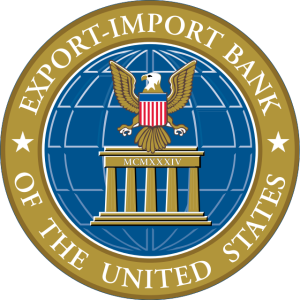Texas congressman leads fight against Ex-Im Bank, crony capitalism

EX-IM BANK:,The bank’s charter expires in September. Since 2007, the Ex-Im Bank has provided some $20 billion in financing for deals involving more than 1,000 Texas companies, who would have to pay more to get the same terms on the open market.
By Jon Cassidy | Watchdog.org
If you like the idea of sinister, mustache-twirling French bankers issuing U.S. national debt on behalf of Chinese corporations, and setting terms that leave U.S. taxpayers on the hook for any shenanigans, then you ought to love the Export-Import Bank.
It authorized French bank BNP Paribas, which was fined $9 billion Monday for violating U.S. sanctions against Iran, Sudan and Cuba, to issue $135 million in U.S.-guaranteed debt for Air China Limited, one of dozens of deals of the sort approved since 2009.
But if you’re tired of policies written by people who can’t tell the difference between pro-market and pro-business, then you’ll probably love Rep. Jeb Hensarling of Stephenville, Texas, the Republican chairman of the House Financial Services Committee.
Earlier this year, Hensarling took aim at the disastrous National Flood Insurance Program, which taxes the poor to subsidize million-dollar beachfront housing and turns every hurricane into a trial lawyer’s dream, but he was undermined by his own party’s leadership.
Now, Hensarling is blocking the reauthorization of the Ex-Im Bank, against the wishes of many of his constituents. The bank’s charter expires in September. Since 2007, the Ex-Im Bank has provided some $20 billion in financing for deals involving more than 1,000 Texas companies, which would have to pay more to get the same terms on the open market.
This is not the way politics usually work. The usual thing would be to make friends with these special interests while figuring nobody else would notice or care.
Gov. Rick Perry, for example, wrote the leadership of both houses of Congress last week on behalf of those Texas businesses, calling for the bank’s reauthorization.
Yet there are signs that Republican Party leaders are heeding the lesson of Dave Brat’s upset defeat of House Majority Leader Eric Cantor in a Republican primary last month, in which crony capitalism was the central issue.
Last week, Cantor’s replacement as majority leader, Rep. Kevin McCarthy, declared his opposition to the reauthorization, despite previous support.
“One of the biggest problems with government is they go and take hard-earned money so others do things the private sector can do,” McCarthy said. “That’s what the Ex-Im Bank does.”
The new House majority whip, Rep. Steve Scalise, also opposes reauthorization, while Speaker John Boehner has said he’s staying neutral.
Hensarling explained his opposition at a committee hearing last year.
“While I don’t often find myself in agreement with statements coming out of the Obama administration, I have found occasion to agree with them on the market distorting power of the Export-Import Bank,” he said. “In a 2012 Treasury report to Congress the Obama administration argued, ‘There should be a level playing field for U.S. exporters, allowing them to compete based on the quality and price of their goods and services, rather than on the quality of any officially supported financing.’”
The Ex-Im Bank has had to suspend or remove four officials in recent months after investigations into gifts, kickbacks and contract-steering, The Wall Street Journal reported last week. One official reportedly took cash bribes to help a Florida company obtain bank financing to export construction equipment. Others are being investigated for improper contract awards.
Then there are the loans to groups linked with the Juarez and Sinaloa drug cartels, the support for Russian oligarchs, and the fact that most of the loans go to large corporations that could easily obtain financing from private banks.
Some 76 percent of Ex-Im’s loans benefit just 10 corporations, the biggest beneficiary being Boeing, with $8.3 billion in assistance to its foreign customers. That assistance drives Delta Airlines Chief Executive Richard Anderson crazy, as it’s a direct subsidy to his competitors at Emirates Airlines of Dubai, Gol and LAN in South America, and others.
The biggest risk to taxpayers, however, has received almost no notice in the political press. Four and a half years ago, the bank began authorizing foreign lenders to issue U.S.-guaranteed bonds — the equivalent of Treasury bills — on behalf of foreign corporations to finance their purchase of U.S.-built aircraft.
For decades, the Ex-Im Bank had provided repayment insurance to U.S. exporters and loan guarantees to the U.S. banks that finance them, but it always had recourse in the event of fraud.
But in guaranteeing bonds issued by foreign corporations, the U.S. is flatly obligated to repay investors, whether or not the company behaves honestly.
Adeline Kow, the head of Export Credit Agency (ECA) Group, Asia Pacific for J.P. Morgan Treasury Services, wrote that the popularity of bond guarantees had led to a 60 (percent) global increase in export credit agency-backed financing in just one year.
U.S. taxpayers have seen their Ex-Im exposure grow from $59 billion in 2008 to $107 billion in 2012, a report by the bank’s Inspector General found.
The Washington Post reported on Hensarling’s fight last week, noting the fight over “crony capitalism” marks a deepening split on the right between free marketers and tea party types on one hand and Chamber of Commerce types on the other.
Contact Jon Cassidy at jon@watchdog.org or @jpcassidy000. If you would like to send him documents or messages anonymously, download the Tor browser and go to our SecureDrop submission page: http://5bygo7e2rpnrh5vo.onion







